Research and reports
The Money Advice Trust is committed to a programme of research which enhances understanding of the debt and credit environment and practically improves money advice.
Latest research and reports
We work with a range of leading researchers from highly respected academic institutions across the UK. The Trust’s research has a strong reputation for breaking new ground whilst complimenting existing work. Our research strategy is managed by our Insight team, which is challenged with enhancing our services for the public and for advisers through research and analysis. Find out more about the Trust’s most recent research here.
Reimagining Insolvency

The Personal Insolvency Review, led by the Insolvency Service, has done much to highlight key challenges in the current insolvency framework in England and Wales. Most recently, the Insolvency Service underlined their view that significant reform is needed – a conclusion we strongly agree with.
Reimagining Insolvency considers how to achieve this. It explores what a simpler and more coherent insolvency framework could look like, based on a set of key principles, that better reflects the reality of problem debt today. It puts forward a single, flexible model with two pathways:
- A full debt write-off route for people with no realistic means to repay, maintaining a 12-month moratorium period;
- A time-limited repayment route for those with sufficient surplus income, ensuring fair contributions over a maximum term before full write-off.
The report aims to encourage discussion on what an improved insolvency framework could look like. We are keen to get thoughts on the blueprint, as we seek to refine it further and build consensus for a new approach that not only reduces the harm of problem debt, but helps prevent it too.
Launched July 2025
Building Up Business

Operating a small business can be a hugely rewarding experience, and small business owners play a pivotal role in the UK economy. However, a lack of access to support with business finance skills can hold businesses back.
Our findings show that there is a clear business finance skills gap:
- 2 in 5 Business Debtline clients do not feel confident navigating their business finances
- Only 1 in 10 Business Debtline clients said they had used any of the government-funded business support helplines
- Just 2 in 5 micro-traders agree there is good business support available for small business owners
Drawing on these findings, our report sets out recommendations to the Government and creditors to help close the business finance skills gap and improve support across the UK.
Launched March 2025
Six steps for local authorities to improve debt collection practice

In 2022/23 local authorities in England and Wales issued more than 2.7 million referrals to bailiffs for debts. As part of our ongoing Stop The Knock campaign to improve local government debt collection practices, we are recommending six steps for all lower-tier and unitary local authorities to implement, where they are yet to do so.
Published August 2024
Broken Budgets
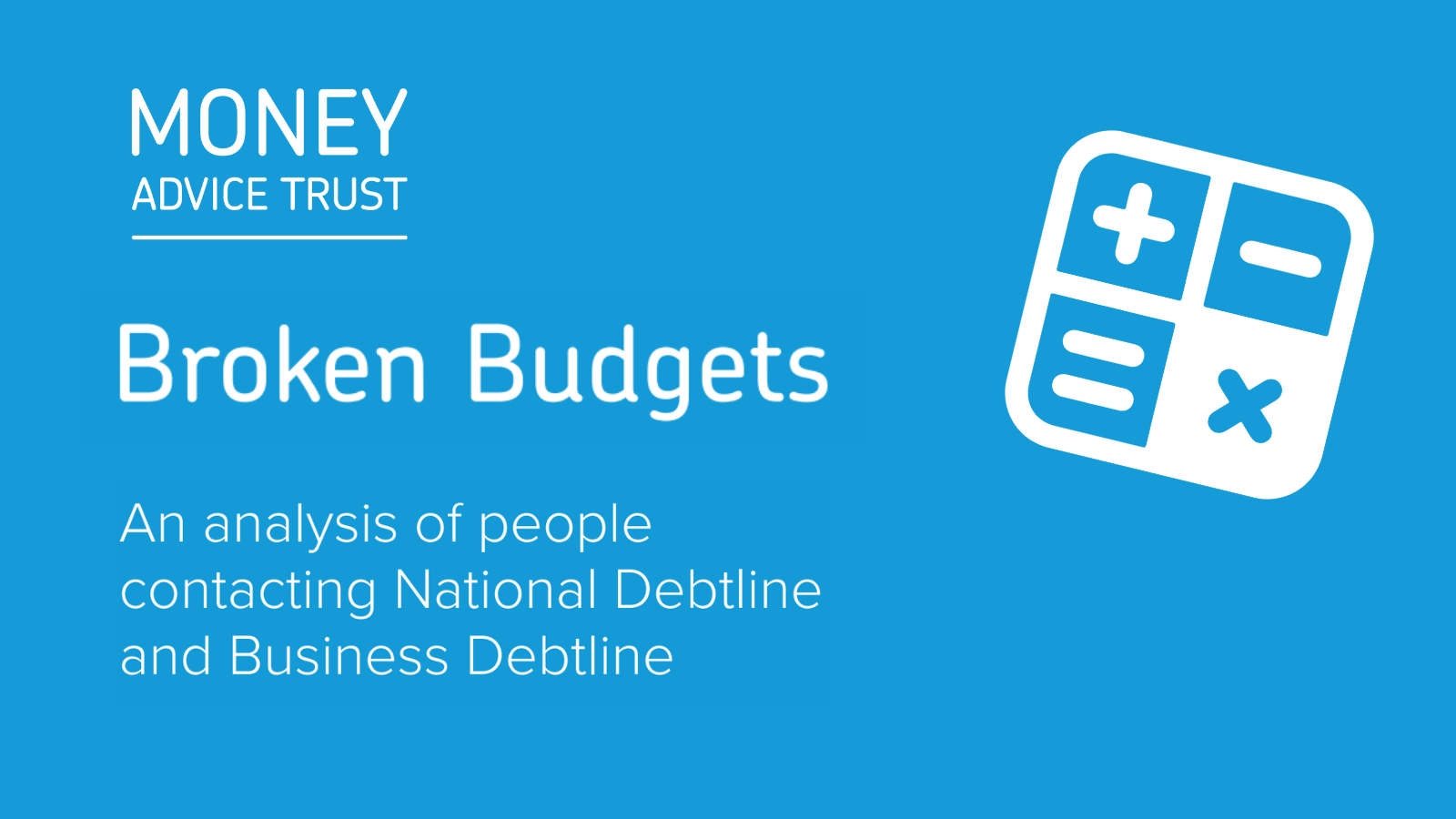
Falling inflation is welcome news. However, many households and small business owners, especially those on lower incomes, are still under significant financial strain. Our research shows that 6.8 million people are still struggling to meet day to day costs.
In our Broken Budgets report we examine the situation for people at the sharp end of financial difficulty. We explore the circumstances of people contacting National Debtline and Business Debtline and the debt issues they face. Our findings show that:
- 11.4 million (21%) UK adults’ financial situation worsening.
- Two in five (43%) National Debtline clients have a broken budget.
- Half (51%) of Business Debtline clients’ incomes not enough to cover essential costs.
We also set out what the new Government could do to help people out of debt now, and to prevent people falling into debt in the future.
Launched July 2024
Help to Repay
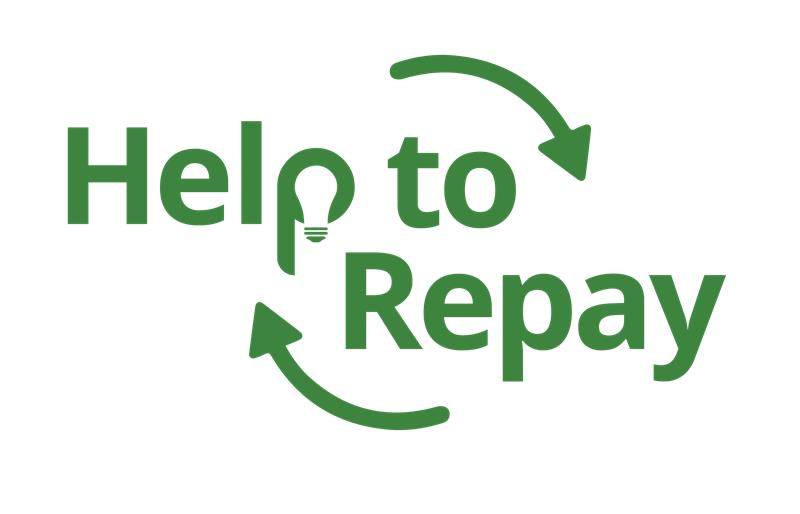
High energy prices have had a significant impact on low-income households and energy debt is now at a record high. With people’s finances stretched to the limit, many people with energy arrears are struggling to repay.
We’re leading a coalition of charities calling on the Government to introduce a temporary Help to Repay scheme. This would provide eligible households with help to reduce what they owe through repayment matching and debt relief.
Based on a UK wide poll of 2,000 adults, our research shows that:
- One in four people with energy debts are currently unable to repay
- An estimated 6.4 million (12%) UK adults are behind on their energy bills – up by 824,000 since April 2023.
- More than one in five, an estimated 11.6 million UK adults, say they have cut back on food and other essentials to meet their energy costs.
- 4.7 million people have sold personal possessions to pay their energy bills.
Findings from October 2023
Under Pressure
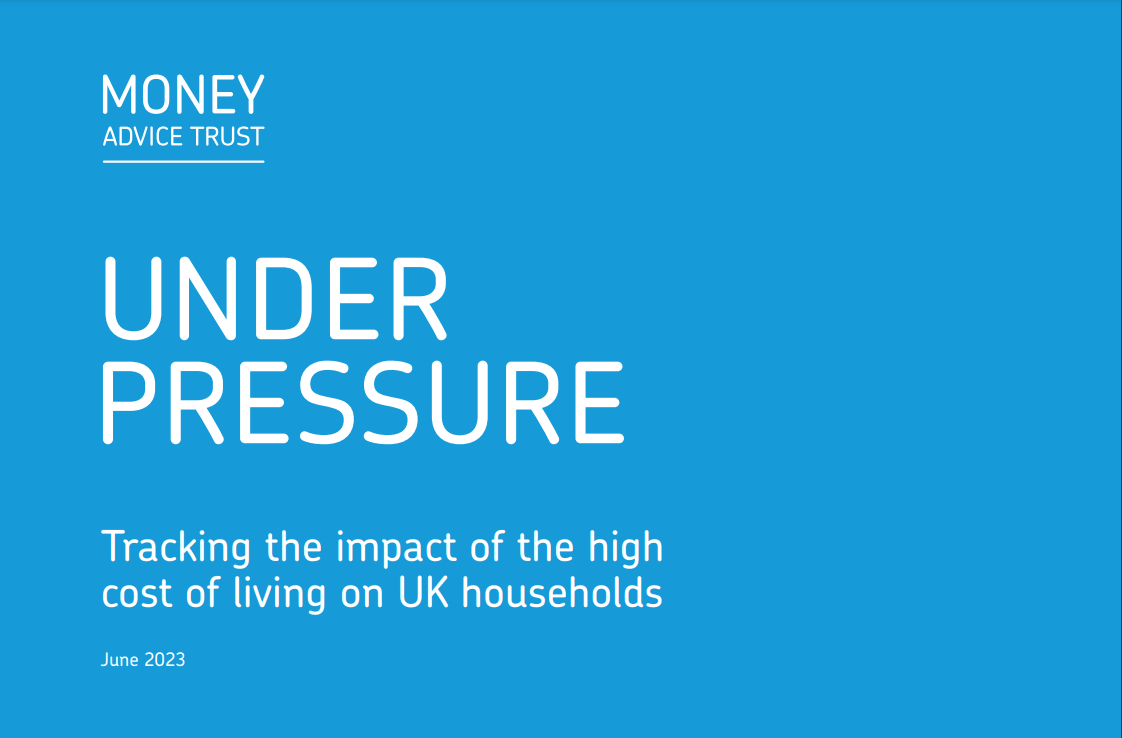
The cost of living challenge for households is far from over. Our Under pressure report, the third in a series tracking the impact of the cost of living on UK households, shows how this difficult economic period has had a significant and concerning impact on peoples’ household finances across the UK. In some cases, this has drawn people who were previously managing into financial difficulty. In other cases, it has made things for people who were already struggling much harder. Our research reveals that by April 2023:
- 3.7 million more people are behind on household bills, compared to March 2022
- 5.5 million people (10% of UK adults) were behind on their energy bills – an increase of 2.1 million since March 2022
- An additional 3.3 million people had recently gone without heating, electricity or water compared to March 2022
- The research also shines a spotlight on how some groups have been more severely impacted by this crisis.
Drawing on these findings, the report identifies four key recommendations to Government and creditors, including a dedicated Help To Repay scheme, backed by 14 organisations, for people struggling with unaffordable energy arrears.
Published June 2023
Shrinking Margins
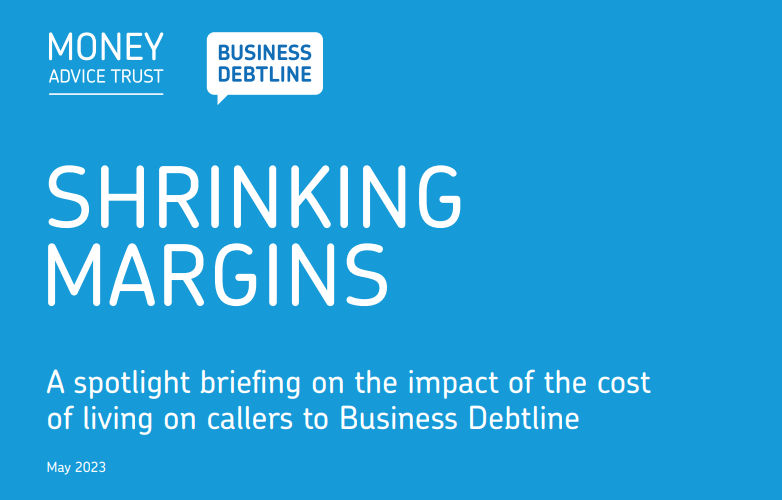
This is the second of two spotlight briefings on the impact the high cost of living is having, and continues to have, on our clients.
Following on from our Counting the costs briefing on the experience of National Debtline clients, our Shrinking Margins briefing shines a spotlight on the impact of the high cost of living on callers to our Business Debtline service.
Many of the people we help are facing difficulties from all directions. As their businesses continue to be impacted by high costs and reduced trade, their personal finances are also being hit by rising council tax, energy and other bills. Based on a client survey, and insight from our services, our findings show that:
- Nearly 6 in 10 of the Business Debtline callers surveyed had gone without essentials like food or clothing due to rising prices.
- More callers are falling behind on household bills like energy and council tax.
- Competing personal and business debts are adding to the challenge.
Published May 2023
Counting the costs
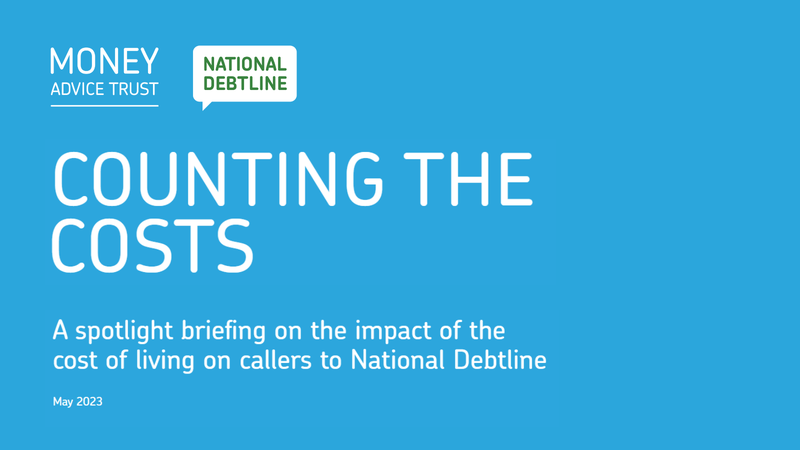
Our advisers at National Debtline see first-hand the serious difficulties many people are facing as increasing council tax, energy, and food bills are competing with other rising costs.
This briefing provides a snapshot into the key challenges faced by callers to National Debtline as a result of the cost of living crisis, and their worries for the future. Based on a client survey, and insight from our services, our findings show that:
- One in five (18 percent) callers to National Debtline in 2022 said their income being too low for their basic needs was the main reason for their financial difficulty – the most common reason cited by callers.
- Nearly one third (32 percent) reported using credit in the last 12 months to cover essential costs like energy or council tax.
- Nearly four in five callers (79 percent) are worried about being able to pay for essentials due to rising costs.
Published May 2023
Talking money briefing

Our briefing brings together insight from National Debtline and analysis from Experian, which provides further insight into the lives of people contacting the service. The briefing explores some of the reasons for debt amongst callers to the charity and the underlying challenges they face.
Experian’s analysis used financial behaviour and geo-demographic modelling, to show which groups are using the service most and those which are not. The findings will be used to help build an even greater understanding of who is seeking debt advice and who may be in need of support.
Published November 2022
Impossible choices cost of living briefing
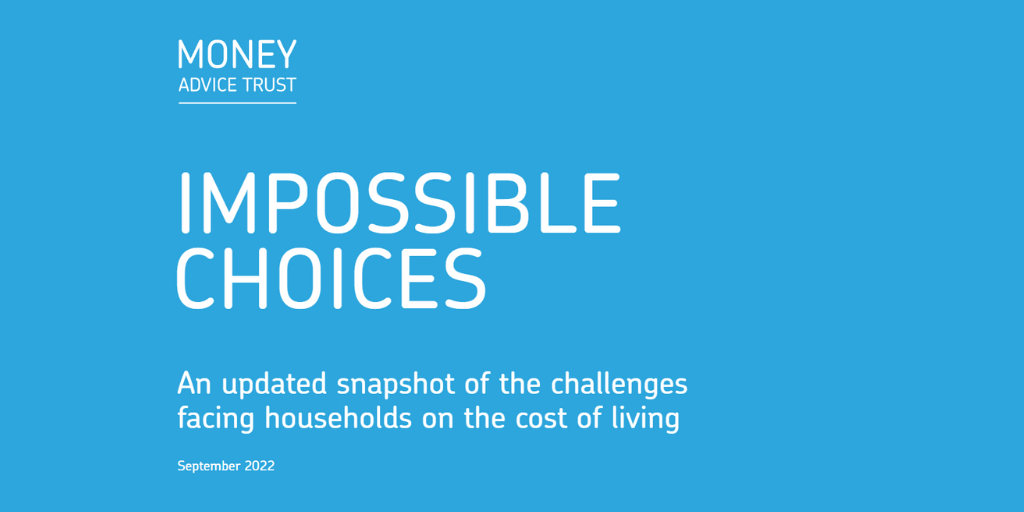
Our latest briefing, based on a poll of more than 2,000 adults, shines a spotlight on the continued financial challenges UK households are facing and the difficulties that lie ahead for many more as the cost of living continues to rise.
The support provided to help households so far is welcome, but the Government and regulators need to go further to support people caught at the sharp end of rising costs by:
- Ensure the benefits system provides enough support for people on low incomes, including significantly uprating benefit levels.
- Provide more support for people already in arrears, including pausing debt collection activity and setting repayments to zero or a token amount.
- Urgently introduce a social tariff to lower the cost of energy bills for low-income households.
Published September 2022
Collision course cost of living briefing
Through our National Debtline and Business Debtline services, we see the sharp end of the current challenges facing households on income, costs and bills. However, the impact of rising inflation, energy costs and out-of-pace incomes are far-reaching.
Our first briefing on the cost of living, based on a poll of more than 2,000 adults, shines a spotlight on the financial challenges faced by UK households.
Our findings show that:
- One in seven UK adults (an estimated 7.9m) were already behind on at least one household bill
- An estimated 6.2 million had gone without energy, water or electricity in the three months prior due to rising costs
- One in five UK adults expected to have to borrow money or use credit to cover their essential costs in the coming three months
- Only one in five UK adults felt prepared to deal with further rising costs
Published March 2022
Building back business
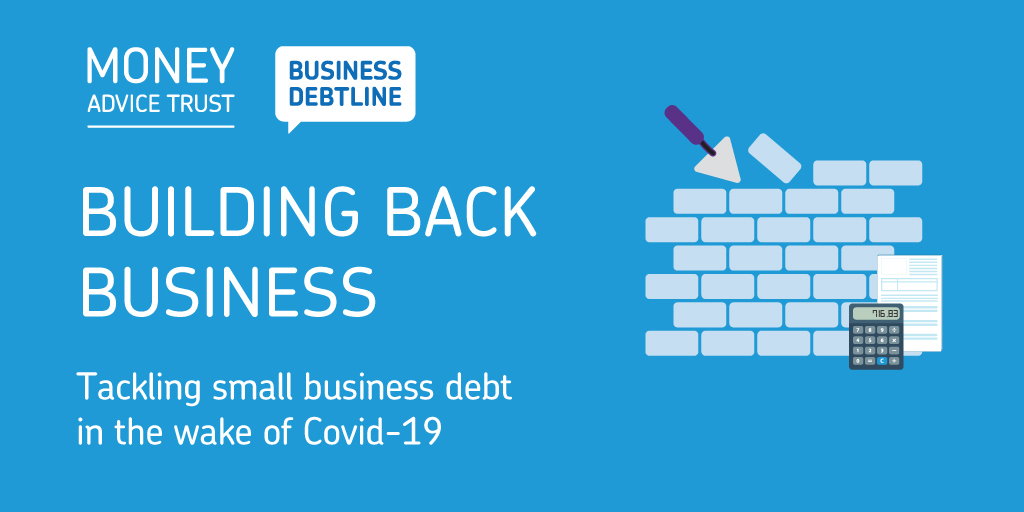
The Coronavirus pandemic has had a profound impact upon the businesses, income and finances of many self-employed people and small business owners across the UK.
Our new report Building back business: Tackling small business debt in the wake of Covid-19 explores the experiences of callers to our Business Debtline service and makes the case for continued support from Government, regulators and creditors to those still struggling.
Based on findings from a survey of callers to Business Debtline, our report shows that a year and a half on from the initial outbreak, and the financial shocks it brought with it, many self-employed people are feeling some sense of a slow return to normality. For others, however, recovery has been more difficult. For people whose businesses are continue to struggle, repaying debts accrued during the outbreak is becoming more of a worry. For those already experiencing problem debt when Covid-19 hit, these challenges are particularly acute.
Published December 2021
Council tax after Covid
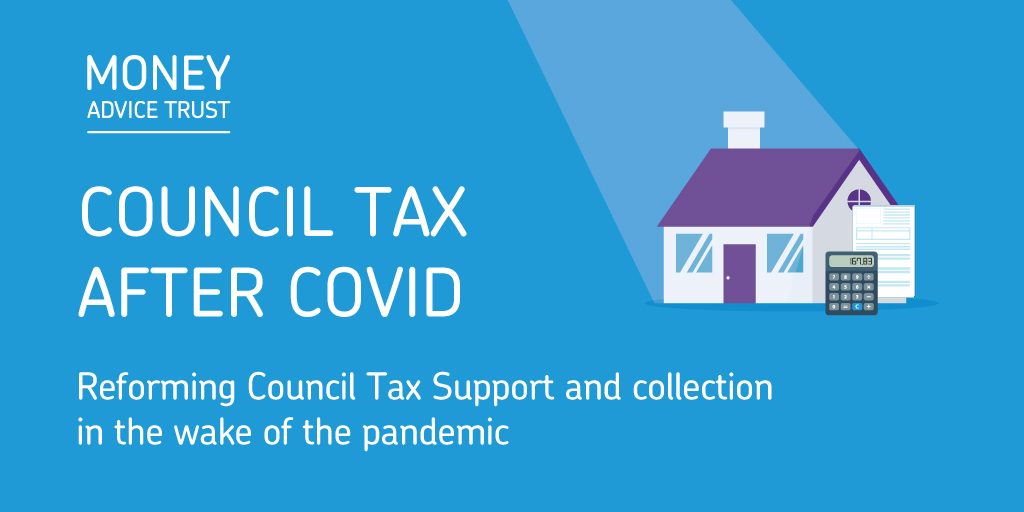
While Covid-19 has undoubtedly meant many households struggling to pay their council tax, arrears levels were already on the rise long before the outbreak. This report explores the problems that persist within the current systems of council tax collection and local Council Tax Support schemes, as arrears levels reach a record breaking £4.4 billion in England alone. Findings are based on new nationwide research conducted by YouGov and the experiences of callers to our advisers at National Debtline and Business Debtline, to provide insight into some of the key issues faced by people struggling to pay their council tax and the urgent reforms needed to help bring arrears levels down and to ensure people who do fall behind are treated fairly.
Published July 2021
Council tax arrears update brief
Our most recent briefing (June 2022) presents key findings on Government council tax collection figures showing that arrears increased by £521 million (12 percent) between March 2021-22 alone. The briefing includes our own analysis on what these figures highlight around the challenges households are facing in affording their council tax bills, and recommendations to improve council tax collection practices to help households who are struggling to pay.
Cost of Covid
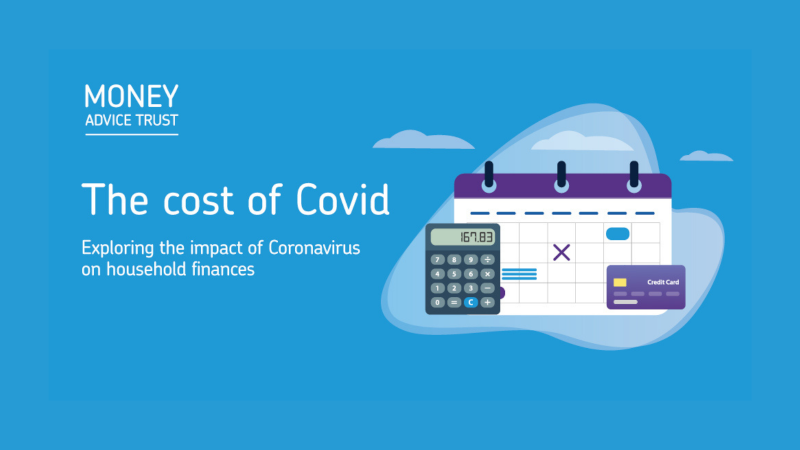
When the Covid-19 outbreak first began, few could have imagined the impact it would have on all our lives. The upheaval of the last twelve months has caused unprecedented damage to our economy and impacted the finances of many households, for better and for worse. Some are in a healthier financial position now than before the pandemic. However, despite government support packages, many people have fallen behind – having lost their job, income or livelihood. At National Debtline and Business Debtline, we see the real-life experiences behind the headlines. Our Cost of Covid report, based on the findings of a poll of more than 2,000 British adults and insight from our own debt advice services, provides insight into the impact the outbreak has had on households experiencing increasing financial difficulty due to the pandemic. You can also read our Covid Rent Arrears joint briefing, with StepChange and others from the debt advice and housing sector, here.
Published March 2021
Back to business
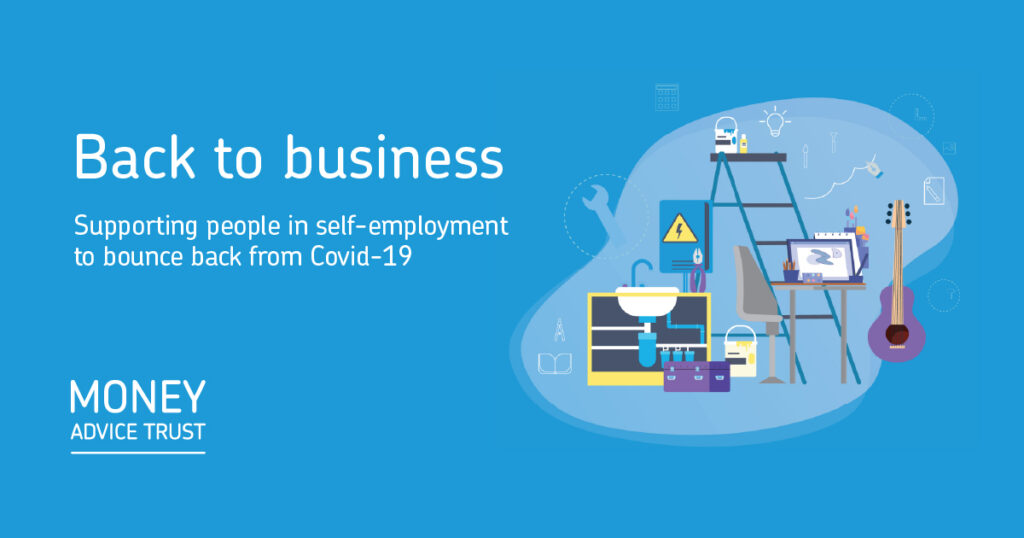
Our Back to business report looks at the impact of Covid-19 on self-employed people, and outlines recommendations to the Government, regulators and creditors to help them recover from the outbreak. Our research shows that four in ten self-employed people surveyed expect it to take longer than a year for their income to recover and one in ten do not expect it to at all. This research reveals the devastating impact Covid-19 has had on self-employed people and their businesses, and the long road to recovery that lies ahead for many.
Published December 2020
How people in debt are coping with the impact of Covid-19
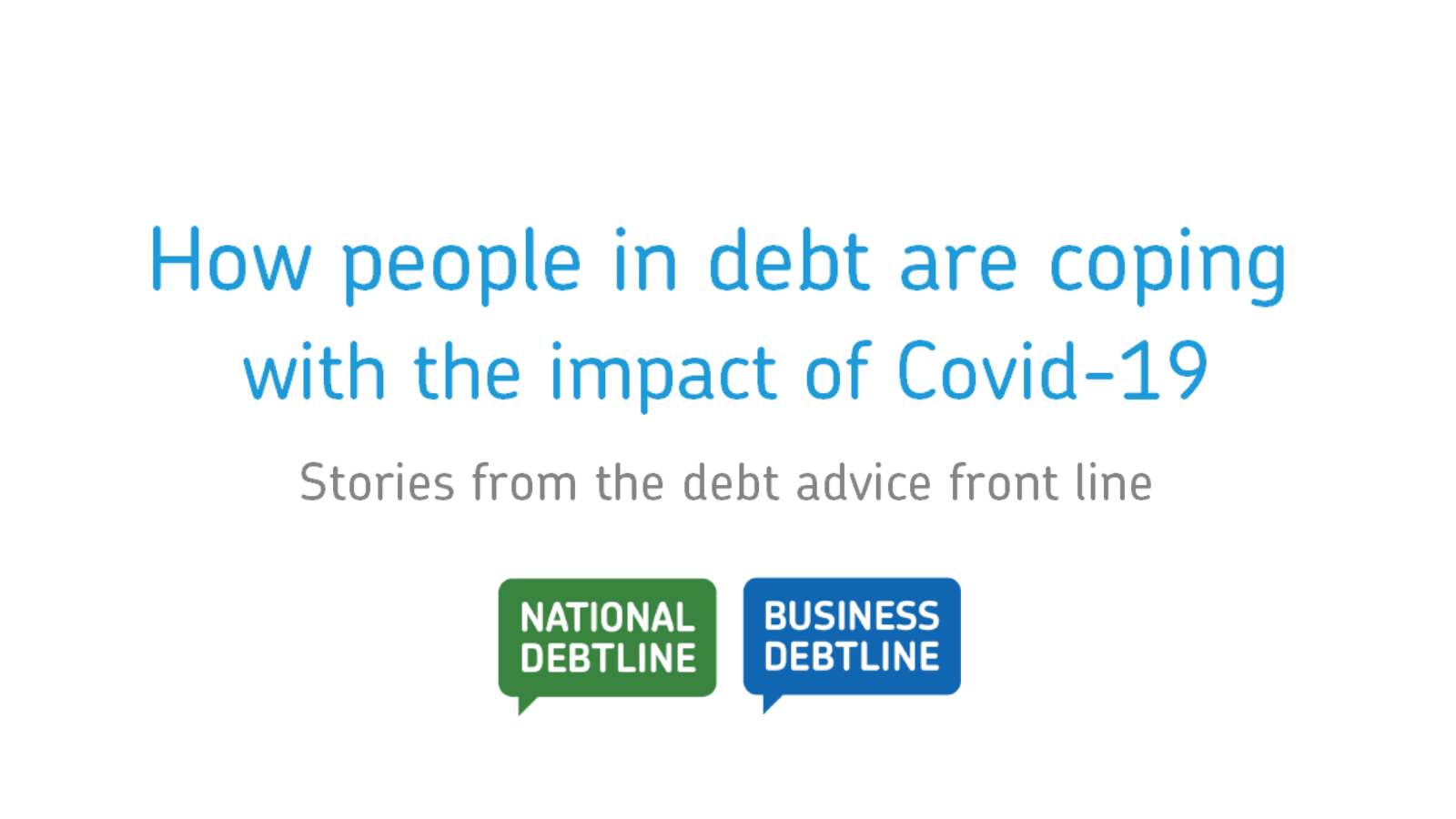
Our How people in debt are coping with the impact of Covid-19 briefing shares stories from callers to National Debtline and Business Debtline on how they are dealing with the Covid-19 outbreak. This qualitative report sheds some light on some of the human situations we are hearing about behind the statistics on the financial effects of the outbreak we hear about.
Published December 2020
Levelling up: The case for reforming government debt collection
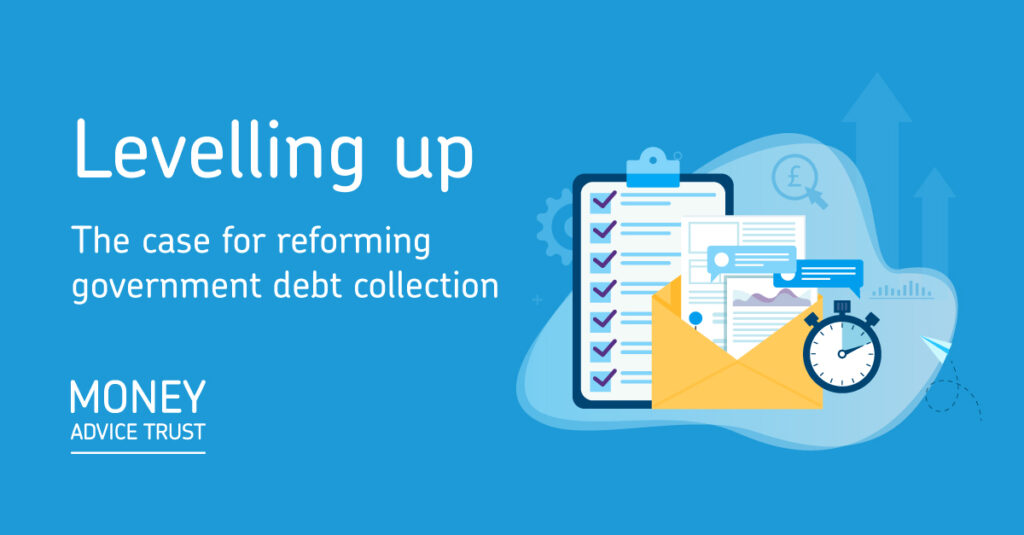
Our Levelling up report was published as the Cabinet Office considered responses to a call for evidence on improving fairness in government debt collection, offering insight in the way that central and local government collects debts including council tax, benefit and tax credit overpayments. The findings come at a time when more people are struggling to repay debts owed to central and local government – a trend that is likely to be amplified by Covid-19.
Published November 2020
Debt options in the new normal
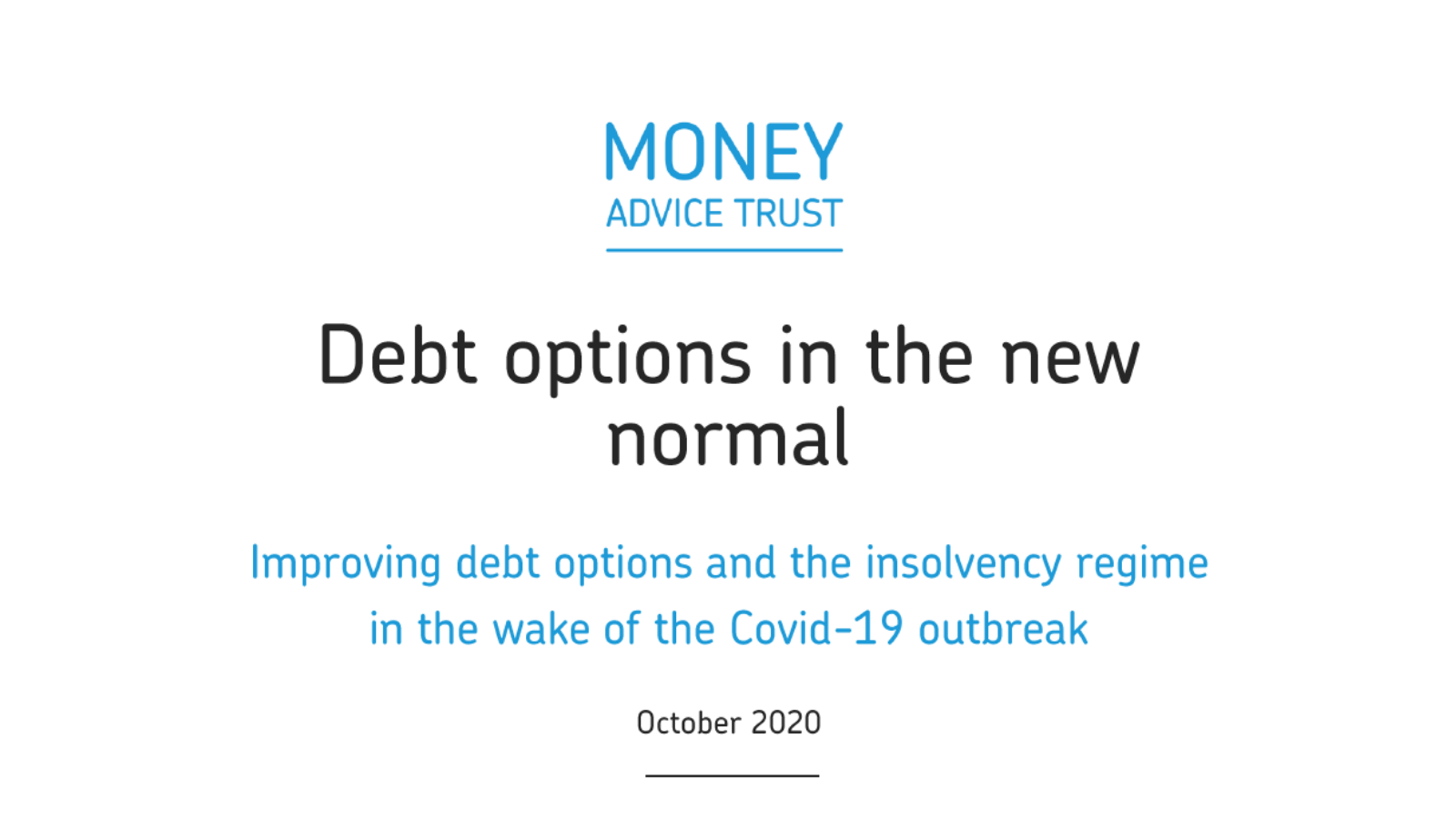
Our Debt options in the new normal briefing explores some of the possible changes that could be made to the existing debt options landscape in the wake of the Covid-19 outbreak to ensure that people struggling with problem debt are able to access robust and effective debt options that support their path to recovery.
Published October 2020
How people in debt are coping with the impact of Covid-19

Our How people in debt are coping with the impact of Covid-19 briefing shares stories from callers to National Debtline and Business Debtline on how they are dealing with the Covid-19 outbreak. This qualitative report sheds some light on some of the human situations we are hearing about behind the statistics on the financial effects of the outbreak we hear about.
Published December 2020
At the business end
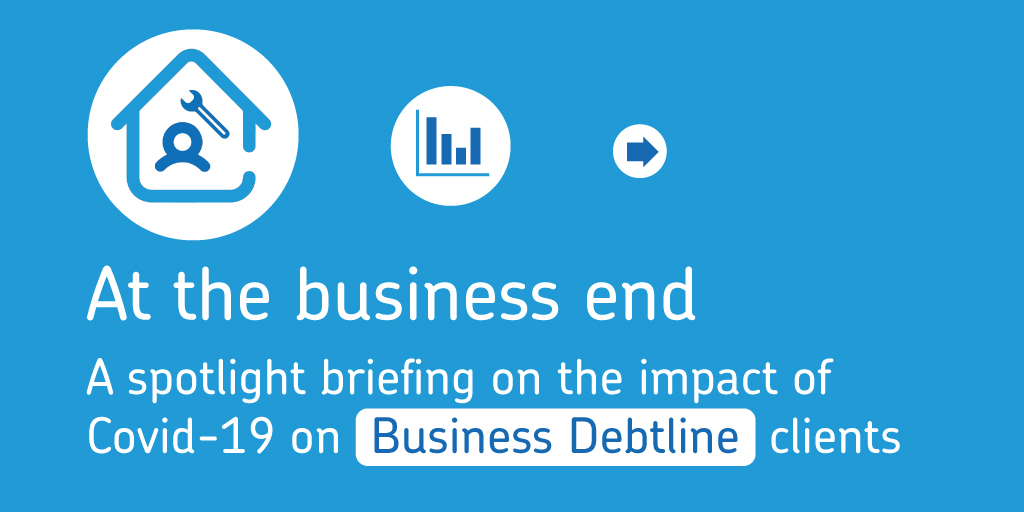
While the financial effects of Covid-19 have been severe for millions of households and across a broad range of the UK population, small business owners and the self-employed are among the groups most vulnerable to the outbreak’s impact. Our At the business end briefing offers insight into the experiences of self-employed people and other small business owners who were already either in or recovering from financial difficulty going into the outbreak – as well as a snapshot of what we have been hearing at Business Debtline so far.
Published August 2020
At the sharp end

For people who were already struggling or dealing with problem debt, the financial repercussions of the Covid-19 outbreak are of particular concern. Our At the sharp end briefing offers insight into the experiences of people at this ‘sharp end’ – people who were already either in or recovering from financial difficulty going into the Covid-19 crisis – as well as a snapshot of what we have been hearing at National Debtline service over the first three months of the outbreak.
Published June 2020
Closing the gaps

Our Closing the gaps briefing, released in April 2020 shortly after the start of the Covid-19 UK lockdown period, set out emerging insights into the impact of the virus on callers to National Debtline and Business Debtline and the steps needed to close the gaps in the Government’s response.
Published April 2020
Business as usual
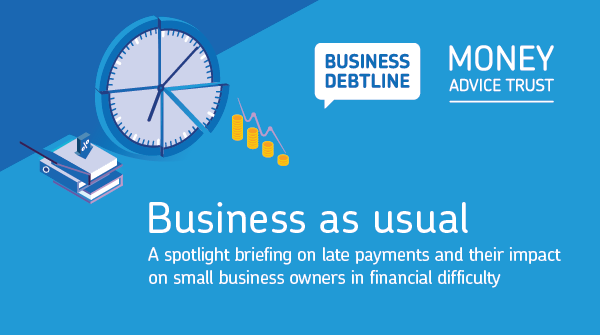
Our Business as usual report highlights the impact of late payments on small businesses. Late payments affects nearly half (45%) of Business Debtline callers, and our advisers can often spend as much time advising callers on how to chase these debts owed to them, as they do on dealing with their own business and personal debts. In the context of growing self employment and small business ownership, the need to tackle the problem of late payments is urgent. In this briefing we have laid out six recommendations for government, creditors and others on how this can be achieved.
Published February 2020
Stop the knock 2019
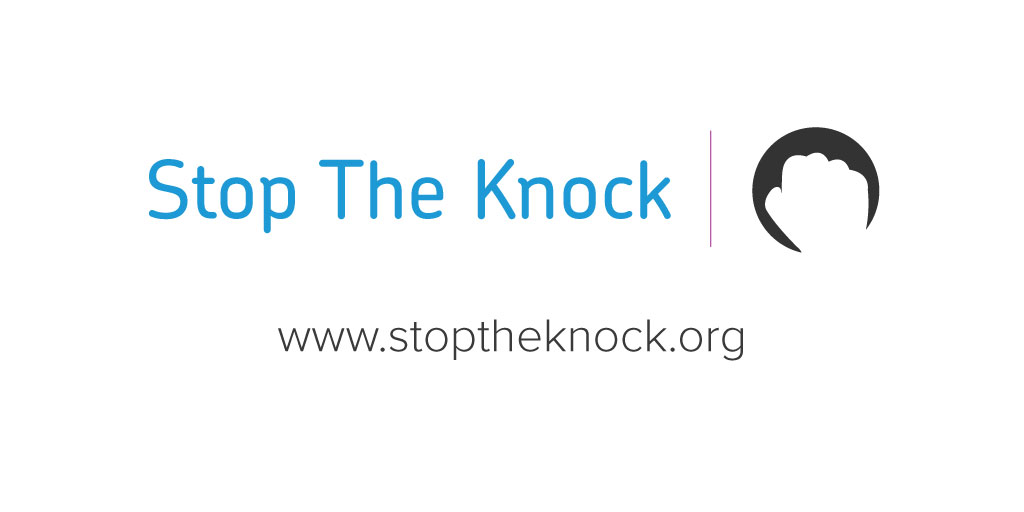
Our Stop The Knock 2019 report explores bailiff use by councils in England and Wales. The findings, based on Freedom of Information requests, show local authorities passed debts to bailiffs more than 2.6 million times in 2018/19, a rise of 7 percent in two years.
The research shows that there were 1.4 million referrals to bailiffs for council tax debt and nearly 1.1 million for parking debts – a 21% like-for-like increase on the same period in 2016/17. The report also finds that councils made some limited progress on improving debt collection practices over two years but outlines calls for local and national policy changes.
Published September 2019
Taking care of business
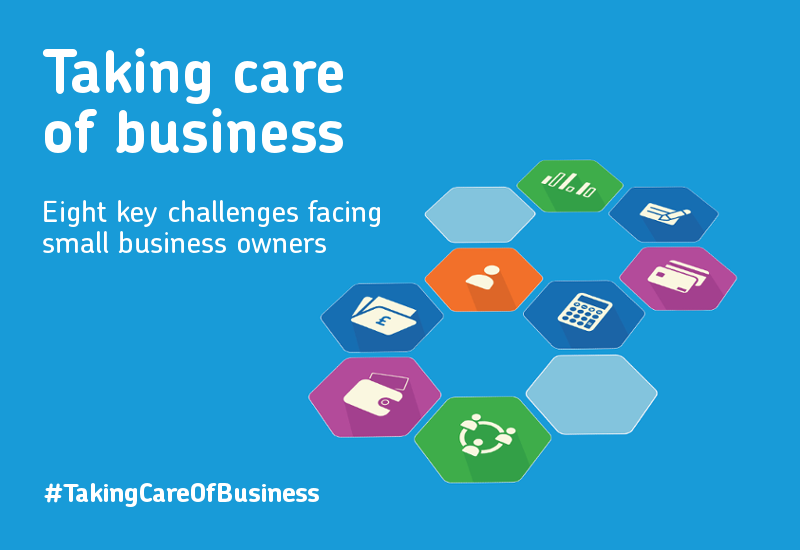
Our Taking care of business report profiles the people we help at Business Debtline and highlights eight key challenges facing people who are self-employed and other small business owners. Issues such as late payments, low and variable incomes and sometimes a lack of essential business management skills are identified as some of the key factors that can lead small businesses into difficulty. The report draws on the experiences of people helped at Business Debtline, as well as an analysis conducted by Experian. A range of recommendations for government, regulators and creditors to help the people behind these businesses are also set out in the report.
Published November 2018
A decade in debt
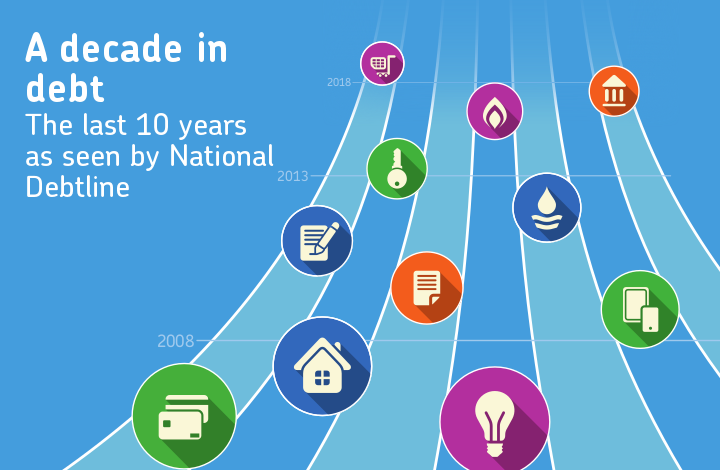
Published in September 2018, A decade in debt looks at how debt problems in the UK have changed in the 10 years since the financial crisis. Ten years ago a typical caller to National Debtline was struggling to pay credit cards and personal loans. Today, callers are struggling with smaller but trickier debts, usually on everyday household bills. The report presents trends as we have seen them at National Debtline across different debt types – consumer credit, housing debts, council tax, energy, water and telecoms arrears and benefit and tax credit overpayments – as well a series of recommendations for government, regulators, creditors and the advice sector.
Published September 2018
Supporting business customers in vulnerable circumstances
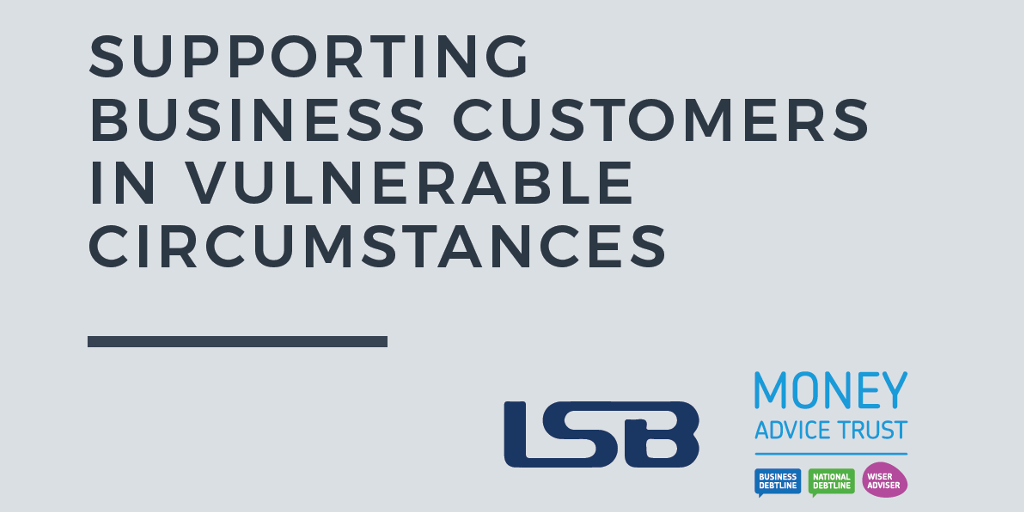
This Money Advice Trust and Lending Standards Board (LSB) joint report explores the impact of vulnerable circumstances on people who run small businesses. The report draws on insight gathered from LSB registered firms as well as interviews with advisers and people helped through Business Debtline. The report finds that while progress is being made in this area, there is more that can be done to support business customers in vulnerable circumstances. Supporting business customers in vulnerable circumstances aims to stimulate discussion and enhance firms’ understanding of how vulnerability affects their business customers.
Published July 2018
Self-negotiators: the experiences of people in debt who negotiate with their creditors
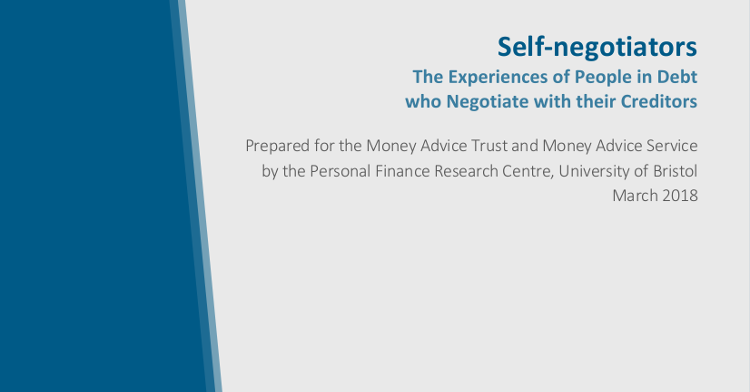
The Money Advice Trust and Money Advice Service published this research into the experiences of people in debt who negotiate with their creditors. The research, carried out by the University of Bristol’s Personal Finance Research Centre, provides insight into the factors affecting successful self-negotiation. It also looks at the roles played by the advice and creditor sectors in supporting people to deal with their debts. Every year hundreds of thousands of people in financial difficulty engage with their creditors directly, a process sometimes referred to as self-negotiation. Some do this alone, using tools and information publicly available while others use the assistance of a debt adviser, for example to help them produce an income and expenditure statement to share with creditors. Self-negotiators: the experiences of people in debt who negotiate with their creditors outlines the value of this approach in giving people the support, confidence and knowledge to tackle their debts themselves.
Published March2018
Supporting small businesses with energy debt

The Trust published Supporting small businesses with energy debt, carried out by the University of Bristol’s Personal Finance Research Centre exploring the impact of energy debt on small businesses. The Trust has also published a number of recommendations for industry, government and the regulator to ensure small businesses have the support and protection they need. The qualitative research, based on interviews with small business owners who engaged with Business Debtline, explores their experiences of falling behind on bills, dealing with energy suppliers and seeking debt advice. While primarily focused on energy debt, the report also provides insight into people’s experiences of setting up and running a small business and how they deal with business finances. The findings show that more support is needed for small business owners, and that energy suppliers need to consider the ‘person behind the business’.
Published January 2018
Stop the knock 2017
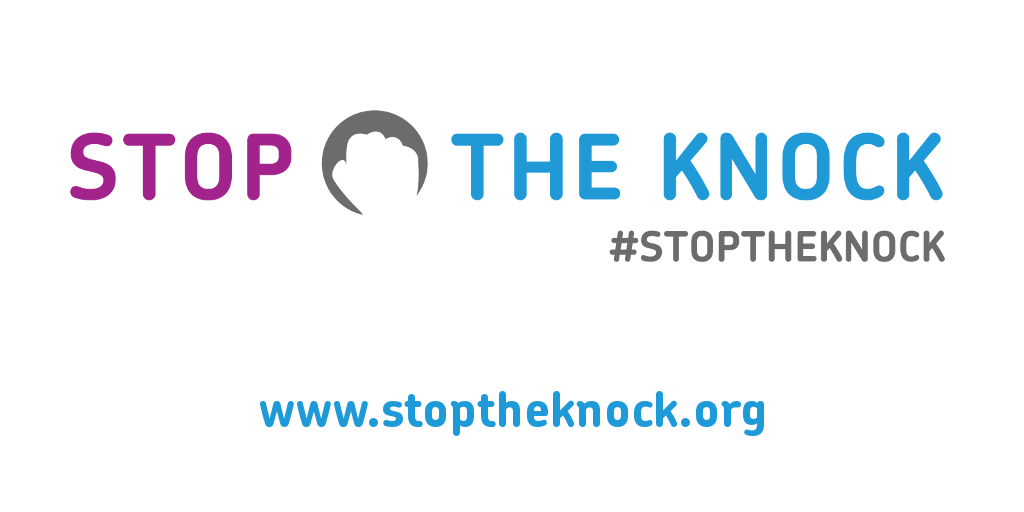
In Stop The Knock 2017, we present a review of developments in the area of local authority debt collection practices since 2015, including trends experienced by debt advisers, new research on local government debt collection and a summary of developments in engagement between local authorities and the advice sector. More than 2.3 million debts were found to have been passed to bailiffs by local authorities in 2016/17, based on Freedom of Information requests. The research found that councils increased their use of bailiffs by 14 percent overall between 2014/15 and 2016/17, despite government guidance stating that bailiff action should only ever be used as a last resort. However, it also found that an increasing number of councils are working hard to improve their debt collection practices – and that four in 10 (38 percent) actually reduced their reliance on bailiffs in that time.
This year the Trust also expanded the scope of our research to more comprehensively map the debt collection practices of lower-tier local authorities. This was based on five different areas of practice – signposting to free debt advice, assessment of affordability, the existence of vulnerability policies and (for England only) approaches to Council Tax Support recipients and adoption of the Citizens Advice/Local Government Association Council Tax Protocol.
Published November 2017
Borrowed years
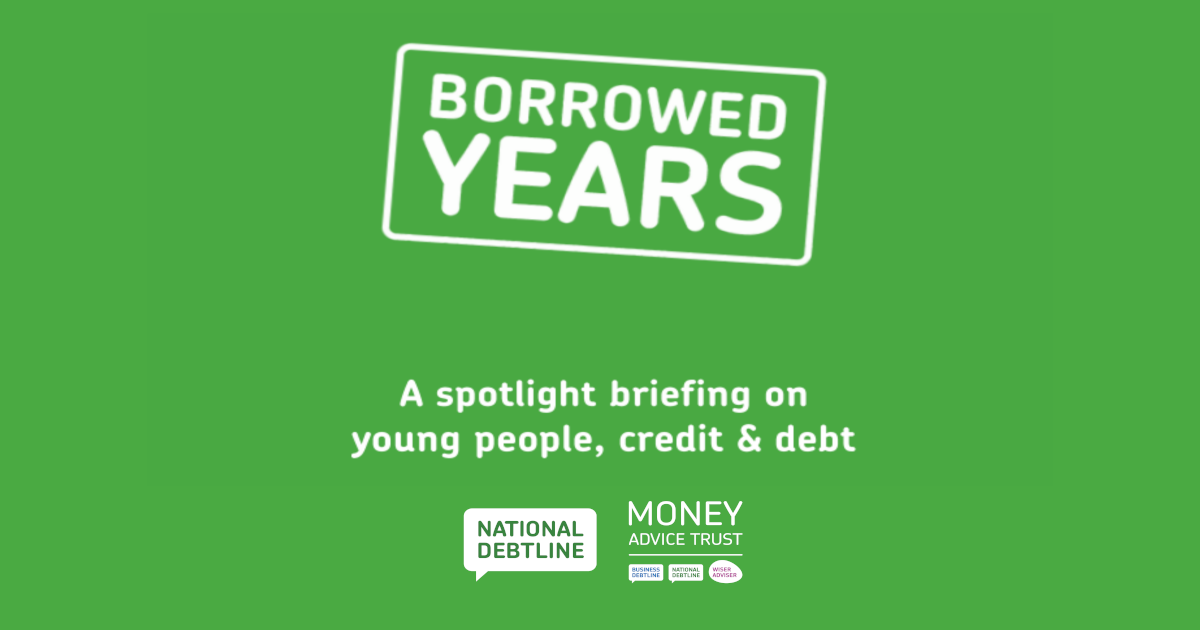
In the first of three ‘spotlight briefings’ on debt and young people, Borrowed Years outlines the Trust’s research exploring 18 to 24 year olds’ experiences with credit, debt and borrowing. Our findings show that many young people are building up debt and worrying about money in their first few years of adult life, but far too few are seeking advice when they fall behind. Against the backdrop of these findings, we present a selection of policy ideas for measures that could help under 25s to avoid financial difficulty and manage their money well. The second spotlight briefing on young people and borrowing from family and friends and the third spotlight on mobile phones were both published in November 2016.
Published August 2016 and November 2016
Stop the knock

Local councils in England and Wales instructed bailiffs to collect debts on 2.1 million occasions in 2014-15, showing that overall bailiff use by local authorities rose 16 percent in the previous two years according to our Stop the knock research. This was despite wide variations across different councils and repeated calls from the debt advice sector, housing charities and others for debt collection practices to improve.
The findings are based on Freedom of Information requests to all 375 local authorities in England and Wales, and show the readiness with which councils instruct private bailiffs to collect unpaid debts – despite the serious negative impact this can have on individuals and businesses in financial difficulty. Councils that use bailiffs the most were also found to have had less success, on average, in collecting council tax arrears.
Research and reports contact details
Contact our Policy Lead, Meg Van Rooyen, for further information on our research, reports and policy influencing work.

Latest consultation responses
The Trust regularly submits responses to consultations and calls for evidence from regulators, government departments and select committees. Find all of our latest responses here.
Research and reports contact details
Contact our Policy Lead, Meg Van Rooyen, for further information on our research, reports and policy influencing work.